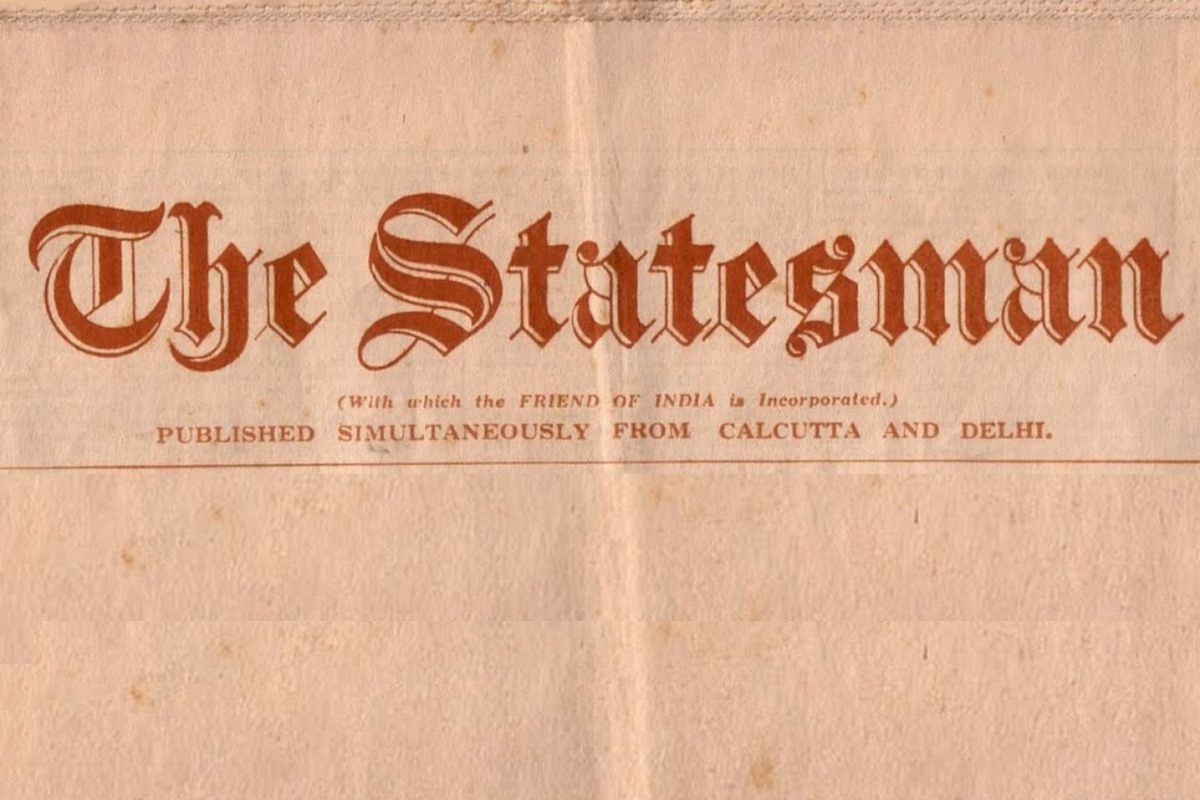A New Day, A New Dawn
There is a surprise for the readers. A special Poila Boishakh gift from none other than West Bengal chief minister Mamata Banerjee. Who has written a piece for this special edition.
On this day a century ago, these were some of the news items The Statesman readers got to read about India and the world.

OCCASIONAL NOTE
It is interesting to note that the first attempt to give practical effect to the theory of Imperial Preference has met with an extremely chilly reception from the very people whom it was designed to benefit. It will be remembered that Reuter recently cabled out the announcement of a proposal preferential duty of 2d. per lh. in favour of British grown teas. On the face of it, this announcement should have brought joy to the grower and exporter of Indian teas. So far from this being the case, however, both Mr. W.J. Lloyd, probably the most experienced buyer in the tea trade in India, and Messrs. S.J. Thomas & Co., a leading firm of brokers, call attention to a serious aspect of what our American cousins would call this “monkeying” with the tariff. As Mr. Lloyd points out, India and Ceylon require, under normal conditions, to find an outlet for about one-third of their crops in markets other than the United Kingdom, and the natural effect of “taxing the foreigner,” i.e., the Java tea grower, will be to force him to dump his leaf into the United States, with the result that the American market will be lost to India. Whether the loss of this important market will be compensated for by increased consumption of Indian tea in Great Britain is a point as to which there seems to be some difference of opinion, but it is, to say the least of it, extremely doubtful.
MORE TROOPS ARRIVE IN PUNJAB
Advertisement
Additional troops are arriving in the affected areas. On the Lyallpur line an outrage was committed on the railway on Tuesday resulting in delay to traffic and serious material damage, but unattended by loss of life. A detachment of British infantry arrived in Lahore on Tuesday evening from Gujranwalla in charge of some 20 of the prominent ringleaders in the recent disturbances there. On Tuesday evening, as a result of martial law and the prohibition of Indians leaving their houses after the firing of the curfew gun, there was a very marked alteration in the condition of the streets, which were practically deserted in the Civil Lines and entirely so in the city. The native quarters were patrolled all night to ensure strict observance of the curfew regulation. The inconvenience caused to residents by the strike of tongas has been completely removed, as the whole of the horse drawn vehicles, as well as motors, are now controlled by the military authorities.
MAINPURI CONSPIRACY CASE
ALLAHABAD, APR 17
In the Mainpuri conspiracy case Somdeo Brahman, who was given a conditional pardon, deposed to being a member of a secret society. Witness said there were four branches of the society, the literary, military, spying and swadeshi departments. The work of the literary branch was to publish seditious and revolutionary literature. The spying branch of the society was to find out all it could about the Government’s affairs, about the strength of military forces, and about forts, and also to do reconnoitering work for dacoits and find out what armed resistance they might expect. Witness recounted briefly the crimes in which he had taken part, or which he heard of from the conspirators who had taken part in them.
CHARGES AGAINST CINEMA PROPRIETOR
MADRAS, APR 17
At the High Court Criminal Sessions today, before Justice Bakewell, the hearing was concluded of the case in which Mr. Rustomji Doradji, proprietor of the Wellington Cinema, pleaded not guilty to charges of cheating and forgery. After the Judge’s summing up the jury returned a unanimous verdict of not guilty on all counts, adding a rider to the verdict to the following effect:- “We are unanimously of opinion that this case should never have been brought in the criminal court.” His lordship acquitted the accused.
AN OBJECT LESSON
The Birmingham Corporation Tramways Committee has accepted a tender for steel tramway rails from an American firm which was able to promise delivery earlier than any British firm that tendered. “This news,” says the Daily Mail, “shows the difficulties with which British trade is confronted. On the one hand the manufacturer is hampered by Labour unrest, which prevents him from promising prompt delivery; on the other he is shackled by various Government restrictions and regulations in imports and exports, which may have been necessary in war but for the retention of which four months after the war no satisfactory explanation has been given.
Advertisement